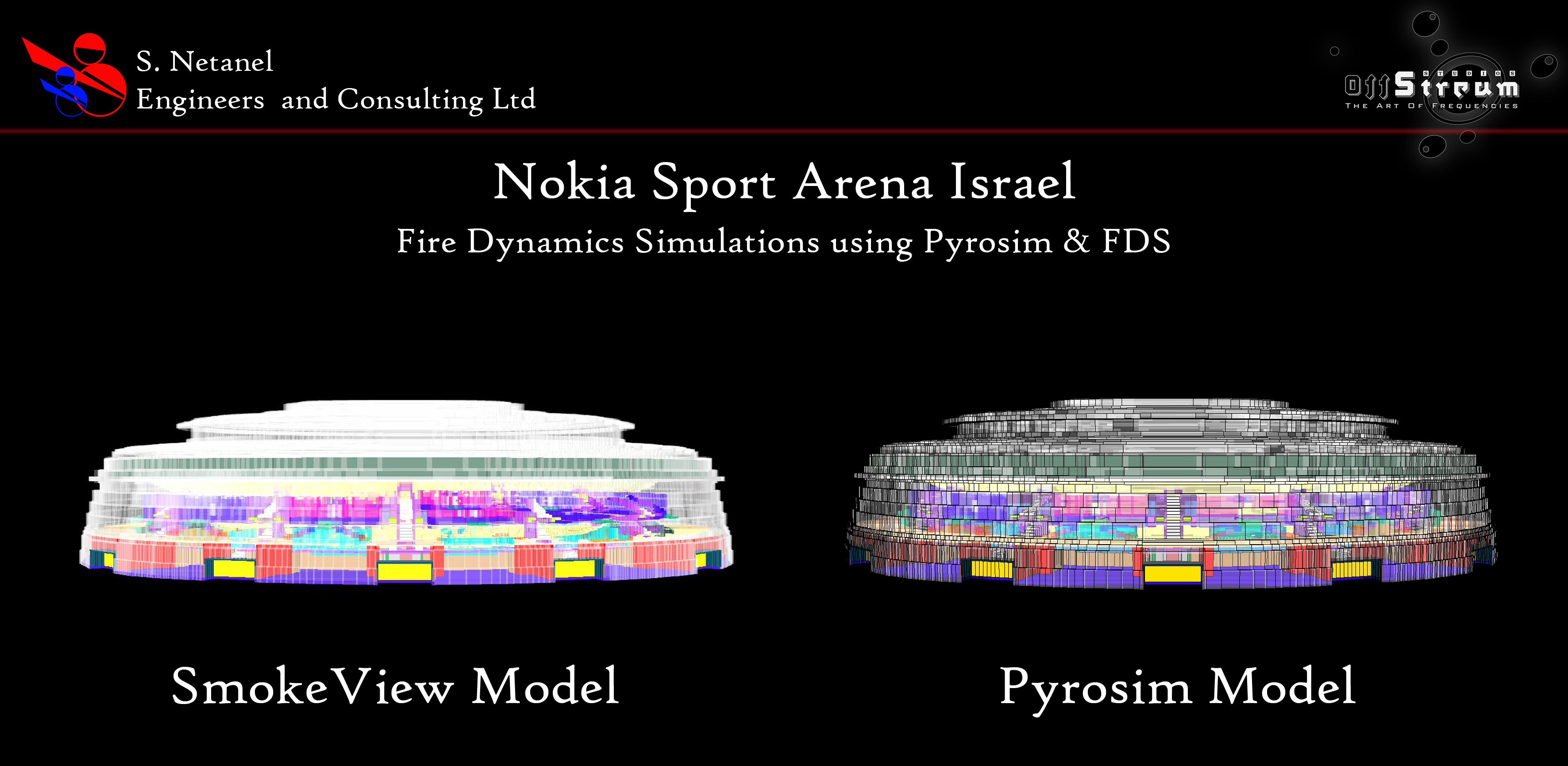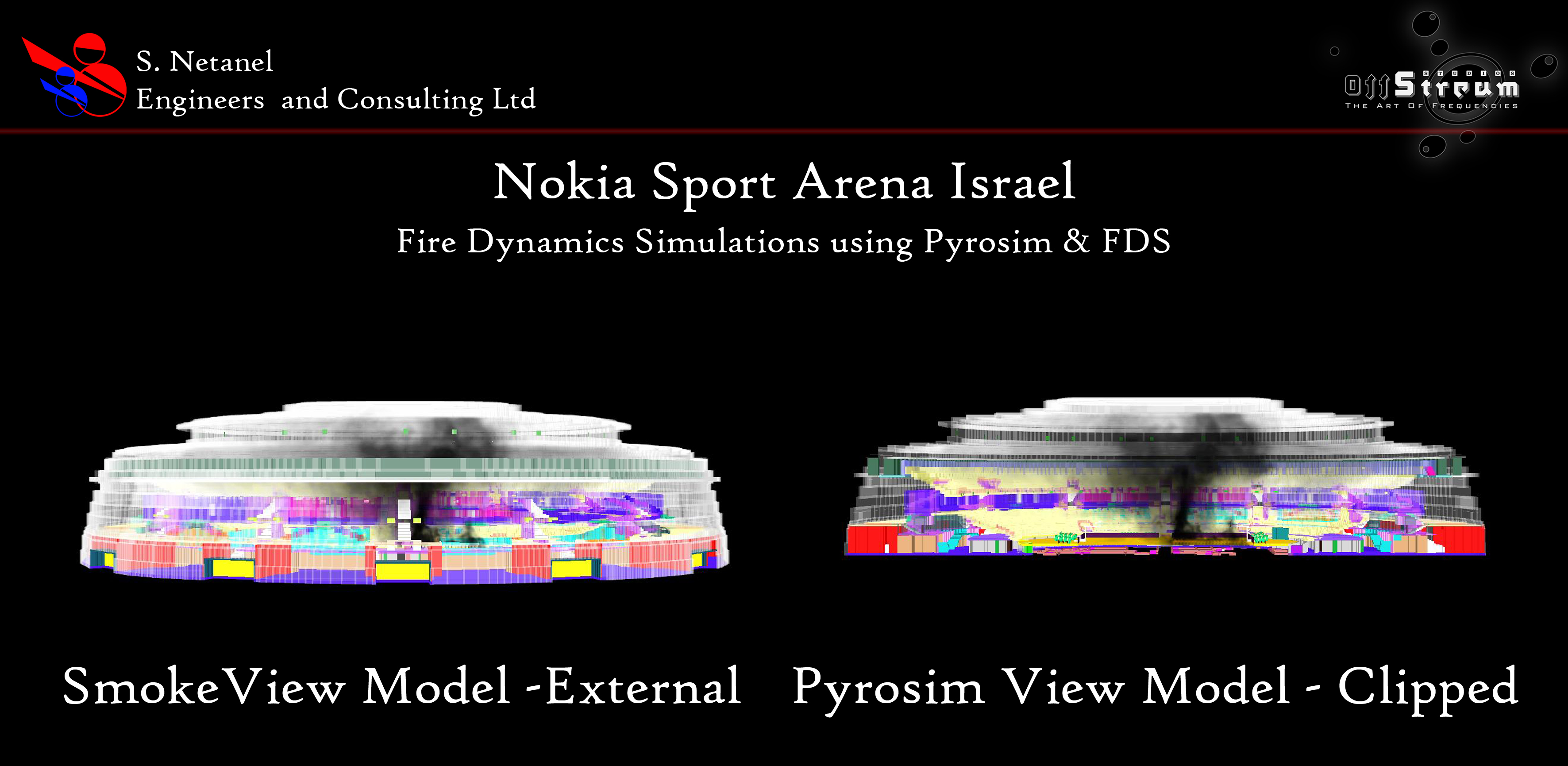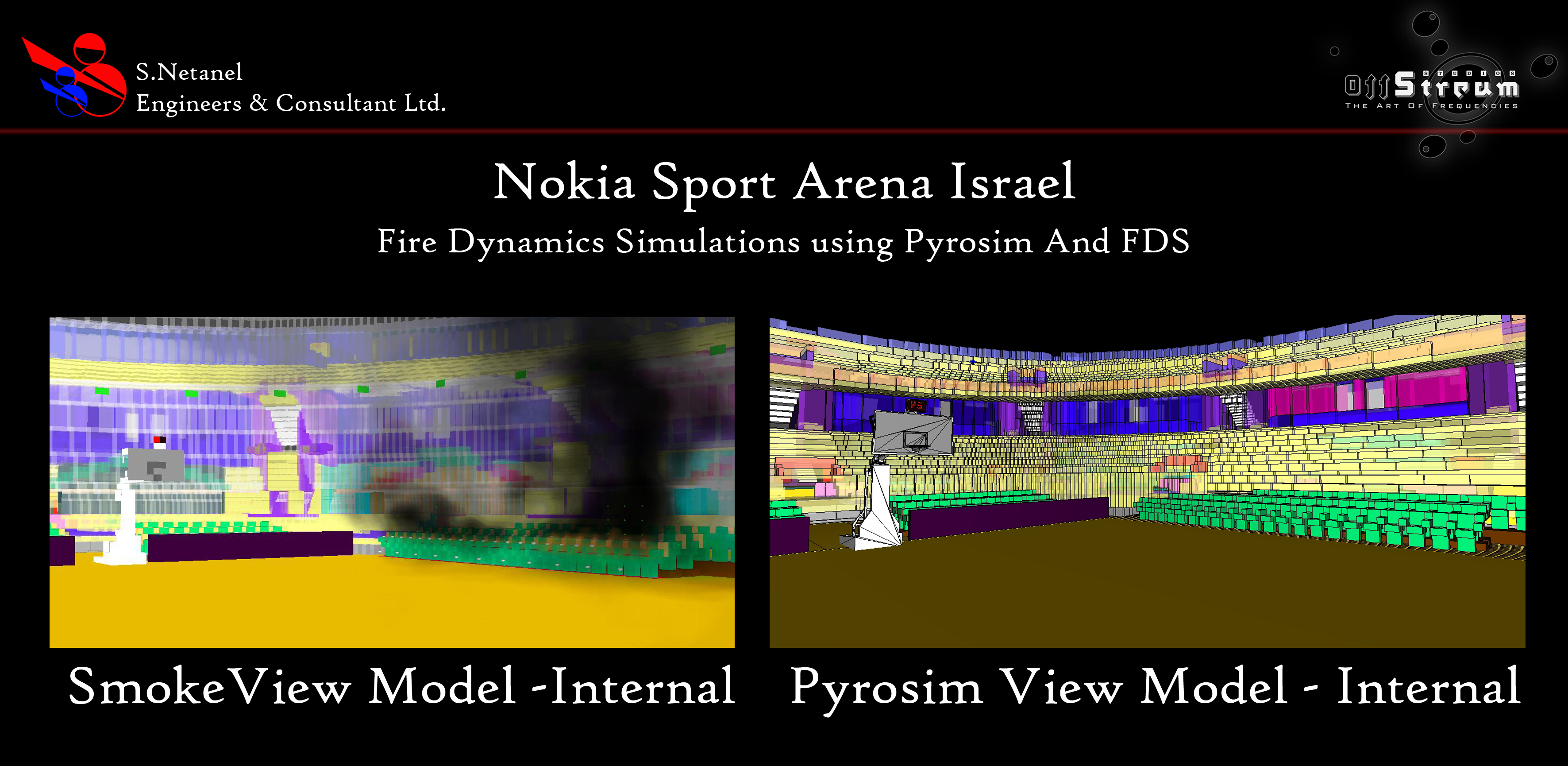Nokia Arena, Tel Aviv, Israel
Submission by: Donna Netanel from S. Netanel Engineers and Consulting Ltd and OffStream Studios.
Nokia Arena, located in the heart of Tel Aviv, has everything you need to allow you to create an international level production: a large auditorium, a magnificent gallery and a huge outdoor plaza. In the area of the arena there are events, conventions, and product launches for between 300 - 11,000 people. The structure is roofed, air-conditioned, and is easily accessible from both the north and the south. There is adjacent parking for 1,200 vehicles, and another 3,300 parking spaces nearby.

In the arena the seats are new and comfortable for viewing, advanced sound system and technological infrastructure, high quality acoustics, a system of state-of-the-art LED screens, wide and comfortable entrances and exits, and an attractive outside area for promotions, sales and advertising geared towards large audiences.
Nokia Arena combines elegant sportiness with maximum comfort and the highest quality facilities that offer producers and visitors a rich and enjoyable cultural experience. Nokia Arena has been used for many years as a location for hosting a wide variety of events. The arena is best-known for being the home court for the Maccabi Tel Aviv basketball team and the Israeli National Basketball Team. Even from its earliest days as an open-air stadium, the arena was the preferred place for holding various events. Nokia Arena has played host to some of the best basketball teams in Europe, as well as the Israeli Cup final four and the women's championship.

History of the Nokia Arena
The arena was built in 1963 as an open-air court that was part of a sports complex that also included the Galit swimming pool. The court, which at that time was named after Yosef Burstein, was paved in tile and had a seating capacity of 5,000 on concrete benches (which today make up a portion of the lower seating). The court was inaugurated on 17 September 1963 in a game between the Israeli National Team and the Yugoslavian National Team. Most of the Israeli National Team's games and those of Maccabi Tel Aviv were played there. Among the most memorable games played on that court were Maccabi's 1967 victory over Joventut Badalona, which became known as the Badalona Miracle, and a victory over Ignis Varese in the second game of the final for the Cup Winner's Cup (Maccabi was defeated at the end of the two meetings, and Ignis Varese won the cup). Another memorable game was when Maccabi Tel Aviv defeated the elite team Real Madrid in 1968.
